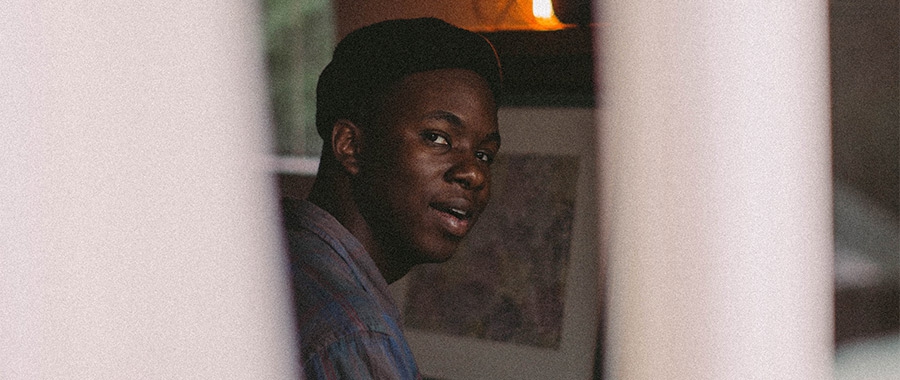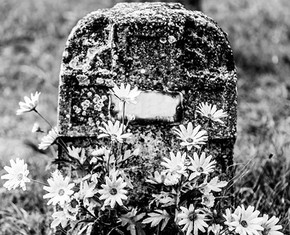The views expressed in our content reflect individual perspectives and do not represent the authoritative views of the Baha'i Faith.
Sometimes it feels like we live in a dog-eat-dog world. Without realizing it, we can get sucked into the criticism all around us. How can we fight against the hardening of our hearts?
The Baha’i writings say:
… under no circumstances whatsoever should we assume any attitude except that of gentleness and humility. – Abdu’l-Baha, The Promulgation of Universal Peace, p. 127.
This is the gold standard, but how do we even try to approach it? There is so much to be critical of in our society: our education system, our political system, our economy… the list could go on and on. While we must be discerning in order to develop, sometimes we turn this critical lens on the individual people in our lives, and add to the hurt in their hearts instead of building up a better world.
Though we may naturally notice other people’s shortcomings, the Baha’i teachings say that it’s what we do once we notice them that matters:
Blessed are the learned that pride not themselves on their attainments; and well is it with the righteous that mock not the sinful, but rather conceal their misdeeds, so that their own shortcomings may remain veiled to men’s eyes. –Baha’u’llah, Gleanings from the Writings of Baha’u’llah, p. 315.
So how can we be discerning and simultaneously practice humility? Here are three humble suggestions:
1. Avoid presenting problems as rooted in an individual, but rather seek to explore the wider collective roots of problems.
Sometimes we find ourselves individualizing problems. A politician proposes a sexist policy, and we focus solely on this single representative of sexism. We neglect to address the wider cultural roots of sexism, the way it is taught in schools and families, or presented in the media. We live in an individualistic culture, so it is easy to fall into this habit of thinking, but if we become aware of the tendency, we can also become more purposeful in adjusting our thought process.
O Son of Being! How couldst thou forget thine own faults and busy thyself with the faults of others? – Baha’u’llah, The Hidden Words, p. 10.
2. Detach from the game of social climbing or competing for luxury, and reject the belief in a dog-eat-dog world.
It takes a serious level of vigilance to constantly correct the habit of trying to compete with and overcome others, but questioning our intentions can help keep this more present in our minds. We can regularly ask ourselves “Why did I just say that?” or “Why do I feel like doing this?” and “How might this make this person feel?” If we realize that what we did or said subtly or overtly hurts someone else, then we can adjust our behavior. We can also journal or talk to others about feelings of insecurity, jealousy, or worry, rather than letting them dictate the way we behave. The Baha’i teachings say that bringing others down will never genuinely benefit our souls in the long run:
No one should glorify himself over another; no one should manifest pride or superiority toward another; no one should look upon another with scorn and contempt; and no one should deprive or oppress a fellow creature. – Abdu’l-Baha, The Promulgation of Universal Peace, p. 63.
When we realize that enough space exists for all of us to flourish, and that reaching our goals is inherently tied to the success of those around us, we can approach things with more humility.
3. Recognize that our intention might not always be the impact, and be prepared to have an honest and tactful conversation if we hurt someone.
When we are not sure of how we have made another person feel, we can simply ask. Part of humility is knowing that you don’t know everything—so even in our reflections, when trying to imagine how our words or actions might affect the people around us, we have to remember that our guess is just that: a guess. We can be wrong.
If we mean to look out for a friend, but our words come across as condescending, then we have to be prepared to open up, drop our ego, and talk about how we can move forward. If there is something brewing in a relationship from the past, we have to be ready to recognize it, digest it, and move forward.
O Son of Being! Ascribe not to any soul that which thou wouldst not have ascribed to thee, and say not that which thou doest not. This is My command unto thee, do thou observe it. – Baha’u’llah, The Hidden Words, p. 10.
To push back against the tendency to judge others, put special effort into internalizing the belief that every single person has the capacity to act constructively. Even further, we will collectively grow if we assume the responsibility of helping this capacity show itself by being respectful and kind to one another:
As there is no one who has not his designated place in the world, for there is nothing useless on this earth, we must treat each individual with respect and affection, for each is a sign of the divine favour and power—that power which has been able to draw such a being out of matter, make of him a creature with sensorial faculties and endow him with intellectual and spiritual potentiality. This is one of the visible proofs of the divine power. Let us respect these living proofs. – Abdu’l-Baha, Divine Philosophy, p. 58.
















Comments
Sign in or create an account
Continue with Googleor